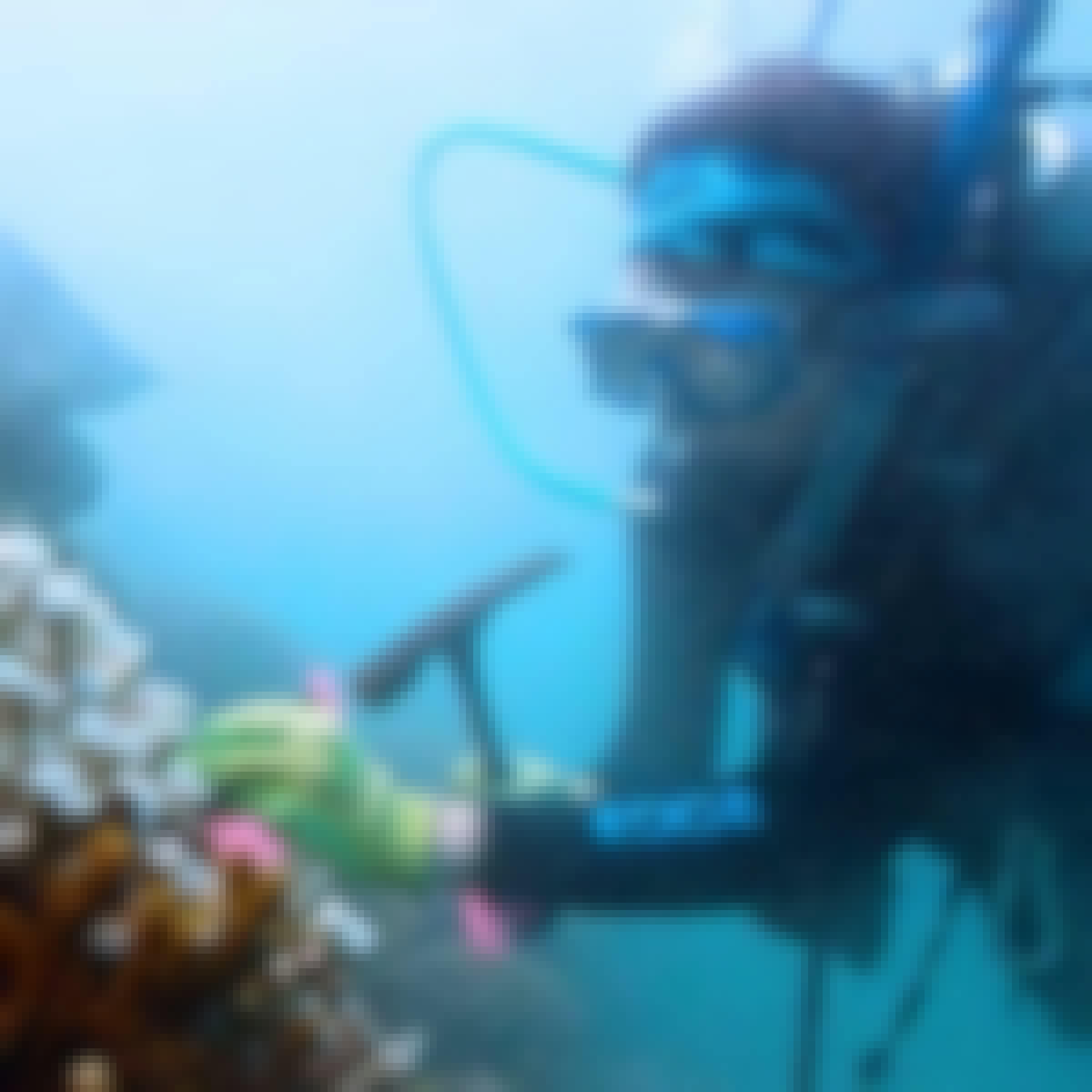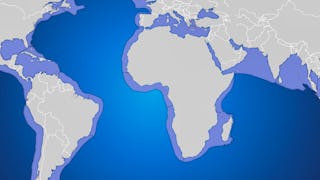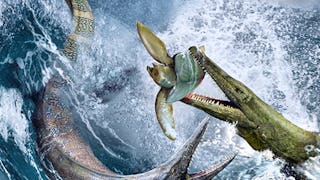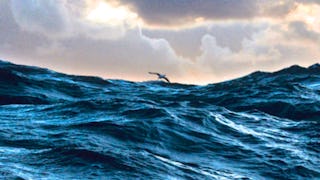Filter by
SubjectRequired
LanguageRequired
The language used throughout the course, in both instruction and assessments.
Learning ProductRequired
LevelRequired
DurationRequired
SkillsRequired
SubtitlesRequired
EducatorRequired
Explore the Marine Course Catalog
 Status: Preview
Status: PreviewAmerican Museum of Natural History
Skills you'll gain: Life Sciences, Biology, Environmental Science, Environment, Biochemistry, Molecular Biology, Environmental Issue, Natural Resource Management, Water Resources, Environment and Resource Management, Research
 Status: Preview
Status: PreviewUniversity of Cape Town
Skills you'll gain: Environment and Resource Management, Natural Resource Management, Environmental Management Systems, Environmental Science, Water Resources, Social Sciences, Environmental Policy, Governance, Environmental Monitoring, Socioeconomics, International Relations, Economics
 Status: NewStatus: Free Trial
Status: NewStatus: Free TrialKhalifa University
Skills you'll gain: Environmental Management Systems, Environment Health And Safety, Environmental Monitoring, Environmental Regulations, Safety Assurance, Environmental Science, Emergency Response, Regulatory Compliance, Hazard Communication (HazCom), Risk Analysis, Risk Management
 Status: Preview
Status: PreviewUniversity of Alberta
Skills you'll gain: Biology, Ancient History, Life Sciences, Taxonomy
 Status: Preview
Status: PreviewUniversitat de Barcelona
Skills you'll gain: Physical Science, Water Resources, Geographic Information Systems, Geospatial Information and Technology, Chemistry, Environment, Environmental Science, Physics, Biology, Remote Access Systems
 Status: Free Trial
Status: Free TrialRice University
Skills you'll gain: Biology, Environment, Microbiology, Life Sciences, Environmental Science, Environmental Issue, Environment and Resource Management, Demography, Natural Resource Management, Anatomy, Molecular Biology, Taxonomy, Estimation, Scientific Methods, Research, Experimentation, Data Collection, Research Methodologies
What brings you to Coursera today?
 Status: Preview
Status: PreviewUniversity of California San Diego
Skills you'll gain: Biology, Life Sciences, Environment and Resource Management, Environment, Product Development, Food and Beverage, Natural Resource Management, Microbiology, Biochemistry, Taxonomy, Manufacturing and Production, Molecular Biology, Anatomy, Chemical Engineering, Production Process, Pharmacology, Nutrition and Diet
 Status: NewStatus: Free Trial
Status: NewStatus: Free TrialUniversity of Maryland, College Park
Skills you'll gain: Presentations, Conflict Management, Team Motivation, Team Leadership, Stakeholder Management, Risk Management, Persuasive Communication, Negotiation, Stakeholder Communications, Collaboration, Stakeholder Engagement, Agile Project Management, Storytelling, Team Management, Project Management, Data Visualization, Motivational Skills, Visionary, Environmental Social And Corporate Governance (ESG), Goal Setting

University of California San Diego
Skills you'll gain: Biochemistry, Manufacturing and Production, Food and Beverage, Chemical Engineering, Pharmaceuticals, Biology, Taxonomy, Environmental Science, Microbiology, Process Engineering, Environmental Engineering, Chemistry, Laboratory Testing
 Status: New
Status: NewCalifornia Institute of the Arts
Skills you'll gain: Peer Review, Videography, Video Production, Photo/Video Production and Technology, Editing, Design Elements And Principles, Storytelling, Journals, Creativity
 Status: Free Trial
Status: Free TrialRice University
Skills you'll gain: Life Sciences, Biology, Taxonomy, Anatomy, Molecular Biology, Microbiology, Scientific Methods, Research
 Status: NewStatus: Free Trial
Status: NewStatus: Free TrialSkills you'll gain: ICD Coding (ICD-9/ICD-10), Medical Billing and Coding, Revenue Cycle Management, Medical Records, Health Information Management, Medical Terminology, Health Care Procedure and Regulation
In summary, here are 10 of our most popular marine courses
- Marine Biology: American Museum of Natural History
- Large Marine Ecosystems: Assessment and Management: University of Cape Town
- Environmental Protection and Sustainability: Khalifa University
- Paleontology: Ancient Marine Reptiles: University of Alberta
- Oceanography: a key to better understand our world: Universitat de Barcelona
- Introduction to Biology: Ecology, Evolution, & Biodiversity: Rice University
- Introduction to Seaweeds: University of California San Diego
- Environmental Project Management: University of Maryland, College Park
- Introduction to Algae: University of California San Diego
- The Art of Filmmaking: Composition and Moving Image : California Institute of the Arts










